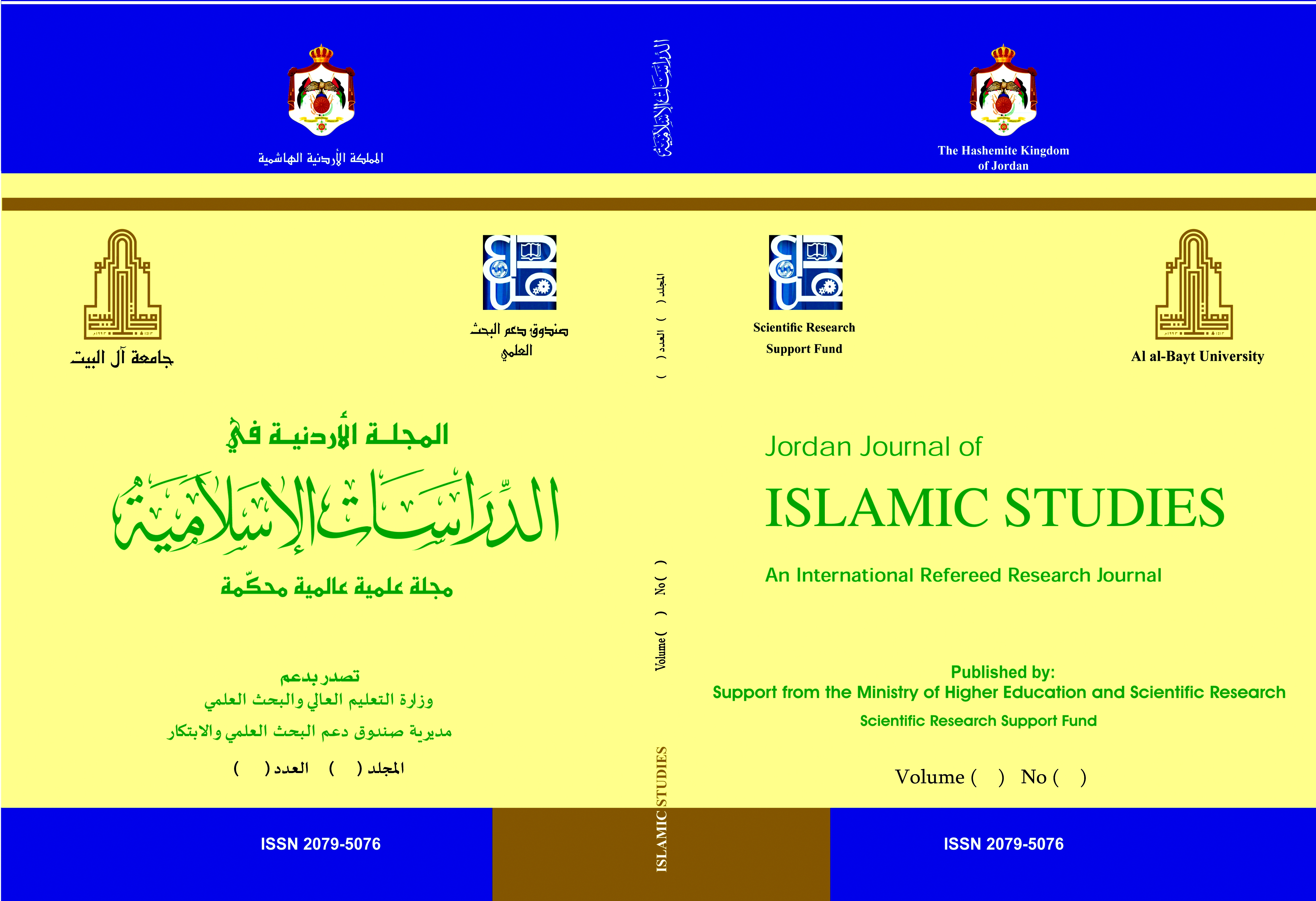Jordan Journal of Islamic Studies

Abstract
ملخص
من المعلوم أنَّ عقد رهن العقار في القوانين الحديثة لا ينعقد إلا بكتابة عقد الرهن وتوثيقه من قِبَل موظف عام. فكتابة عقد رهن العقار وتوثيقه له دور أساسي بعقد الرهن الرسمي أو التأميني. وهذا على خلاف الرهن الحيازي الذي يقع عادةً دون كتابة ودون توثيق، لكنه يستلزم نقل حيازة الشيء المرهون من الراهن إلى المرتهن. وهذا النوع –كما هو معلوم- لا يقع على عقار، بل على منقول. غيرَ أنَّ الفقه الإسلامي لم يُفرِّق بين العقار والمنقول في نقل الحيازة، فأوجب نقل الحيازة - وهو ما يُعرف بـ"القبض"- من الراهن إلى المرتهن سواء كان الشيء المرهون منقولاً أو عقاراً. فنَظَّم الفقه الإسلامي القواعد التي يتم فيها قبض الشيء المرهون من الراهن إلى المرتهن، وبيَّنَ كيف يتم القبض في المنقول وكيف يتم القبض في العقار. كما وضع مجموعة من القواعد والآثار التي تترتب على هذا القبض. إلا أنَّ الفقه الإسلامي عند تنظيمه لرهن العقار لم يُنظِّم الشكلية في هذا العقد، وذلك اكتفاءً منه بتنظيم القبض. فلا يوجب الفقه كتابة عقد رهن العقار، ولا يوجب أيضاً توثيقه من قِبَل الموظف العام، وإنَّما جعل القبض نفسه أداةً للتوثيق. تأتي هذه الدراسة لتبيِّن مدى انسجام الشكل الذي تتطلَّبه القوانين الحديثة مع قواعد القبض التي نظمها الفقه الإسلامي. فهي تناقش إمكانية استبدال "القبض" بالتوثيق الكتابي في الفقه الإسلامي. وخَلُصت الدراسة بنتيجة مهمة مفادها أن التوثيق الكتابي في التشريع الإسلامي هو الأصل، والرهن استثناءً من هذا الأصل. كما خلُصت الدراسة إلى أنَّ القبض في التشريع الإسلامي لا يقع إلا على المنقول، فهو لا يقع على عقار. وهذه النتيجة جاءَت على خلاف ما جاء به الفقهاء المسلمون السابقون، أي أنَّ هذا البحث خالَفَهم في موضوع قبض العقار (تخليته)، وقد بُنيت هذه المخالفة على منهجية بحثية علمية سليمة، إذ اعتمد الباحث في منهجيته على المنهج التحليلي، فتمَّ جمع كل ما هو متعلق بالبحث من آيات قرآنية وأحاديث شريفة وآراء فقهية، ثم تم َّ تحليلها والوصول إلى النتيجة المذكورة.
Abstract
It is known that the contract of pledge (mortgage), in which the real estate is an object, is not concluded without official procedures in the modern laws. So, if there are no official procedures, the contract is not considered concluded. However, if the object of the contract is movable thing, then there is no need to make the official procedures because the possession of the object is transferred from the pledger to the pledgee. But in Islamic Law, the possession of the object should be transferred from the pledger to the pledgee and there are no official procedures whether the object is movable or immovable thing, i.e. transferring the possession should happen in the movable and the immovable thing and the official procedures are not required. This research comes to discuss the feasibility of substituting and replacing the “transferring of the possession” of the immovable thing, in Islamic jurisprudence, by the official procedures. The research depends on the descriptive and analytical methodology. The research comes out with important results. First, we can replace “transferring the possession” in the official procedures in the immovable things in Islamic Law. Rather, the Holy Qur’an renders the official procedures as a fundamental principle. Second, according to some verses in the Holy Qur’an, transferring the possession of the item in the contract of pledge should happen in the movable things only. The classic Muslim jurists did not deduce this result although it is mentioned indirectly in some verses.
Recommended Citation
Alqasaymeh, Maan
(2021)
"مدى انسجام الركن الشكلي في عقد رهن العقار مع قواعد "القبض" في الفقه الإسلامي - دراسة مقارنة بين الفقه الإسلامي والقانون الوضعي The extent to which the formal element in the real estate mortgage contract is consistent with the rules of "seizure" in Islamic jurisprudence: a comparative study between Islamic jurisprudence and statutory law,"
Jordan Journal of Islamic Studies: Vol. 17:
Iss.
1, Article 10.
Available at:
https://digitalcommons.aaru.edu.jo/jois/vol17/iss1/10

